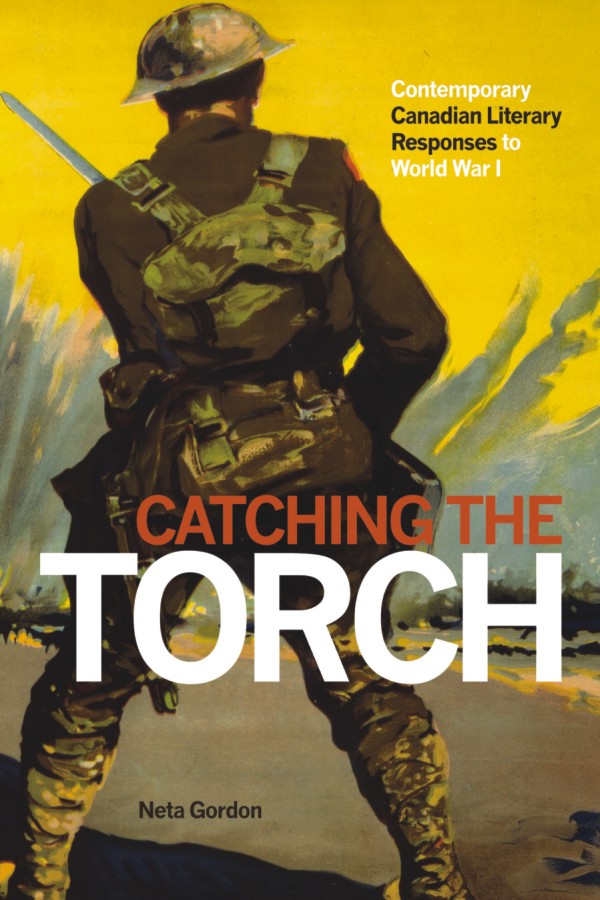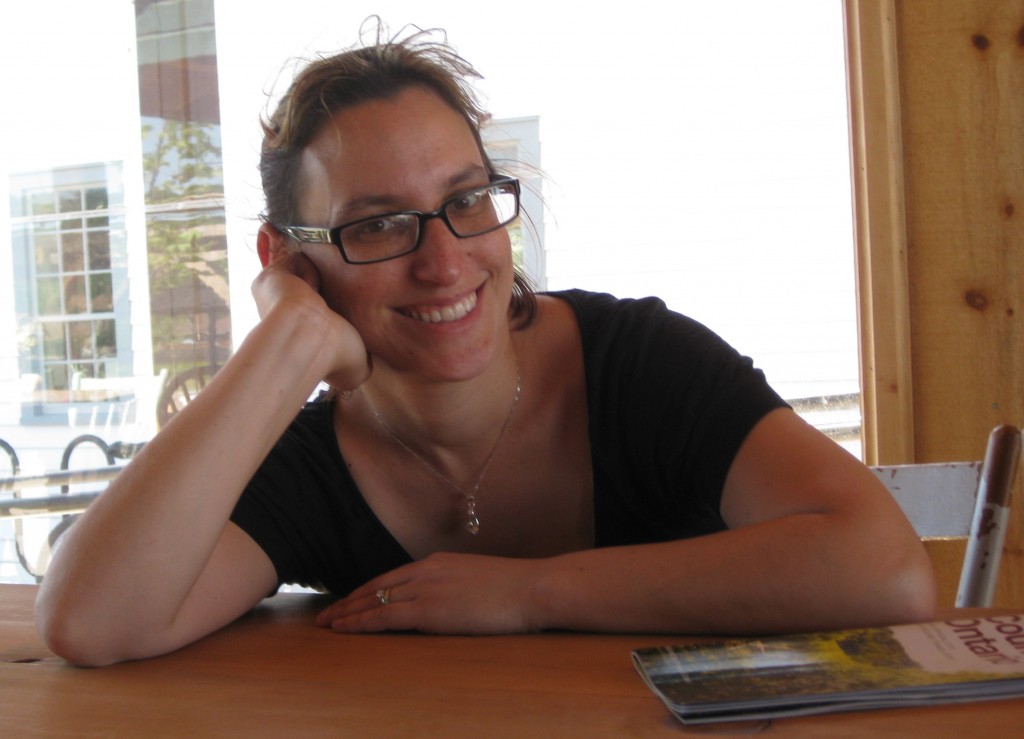A Brock prof’s book on contemporary Canadian First World War literature aims to challenge our prevailing ideas about Canadian identity on the 100-year anniversary of the Great War (1914-18).
Catching the Torch: Contemporary Canadian Literary Responses to World War I by Neta Gordon, associate professor of English Language and Literature, wrestles with questions like what the First World War mean to Canadians? And why does it mean what it means to us?
“There’s various candidates for defining mythologies for Canadians,” says Gordon. “One of them is the railway connecting this vast country, and another one is World War One.”
“The war is compelling because of this sense of anxiety about Canada’s distinct character,” she says. “What you get in the literature is an attempt to make sense of the human story. And so this idea of Canada’s distinctive character is described through characters.”
Her research examines a wave of First World War texts that emerged in Canadian literature from about 1995 to 2005. Book examples include Joseph Boyden’s Three Day Road, Jane Urquhart’s The Underpainter and The Stone Carvers, Jack Hodgins’s Broken Ground, Kevin Kerr’s Unity (1918), Stephen Massicotte’s Mary’s Wedding, and Frances Itani’s Deafening.
Gordon suggests that the then-upcoming centenary in the 90s and the countdown of remaining Canadian veterans who served in the First World War during that and the ensuing decade brought the topic to mind again in our country’s collective consciousness.
“The collective memory of World War One is complicated,” says Gordon. “It’s a particularly complicated memory for Canadians because there are competing narratives.”
“On the one hand there’s the narrative that World War One was Canada’s war of independence, that it was the forging of our nation,” she adds. “That mythology is incredibly powerful, so it becomes an opportunity to really think about nationhood, and to think about Canadian identity and Canadian character and Canada’s place in the world.”
“But that narrative, especially for literary people, is too simple. What I was interested in was how that narrative competes with other narratives,” she says. “What literature tries to do is present the idea of many possible truths and work through how human beings gravitate towards some truths over others because they serve a particular human purpose.”
Prevalent narratives that Gordon cites from the literature include the view that the First World War was a colossal disaster and that the human toll from this first truly mechanized war, which brought in the 20th century, was just one horror after another. Alternately, a competing narrative questions how celebrating a military history cuts against other myths that Canadians have about themselves, especially with regards to tolerance and peacekeeping.
Gordon cites Boyden’s Three Day Road and Urquhart’s The Stone Carvers as examples of texts that engage with such competing narratives. Three Day Road addresses aboriginal participation in war and Urquhart’s book depicts a German-Canadian community’s complicated response to the war, given that Canada is a multicultural nation with lots of immigrants from axis power nations.
She also points to Canadian historian Jonathan Vance’s notion that the Canadian First World War soldier was an emblem for all that we think of as good and noble and pure in Canada.
“Many of these literary texts play with that,” says Gordon, “The soldier or home front volunteer who will do his or her own duty because he or she wants to do his or her part for the collective.”
One of the things that Gordon discovered throughout her research was, what she refers to as, a nostalgia for war in these texts. A nostalgia born from increasing anxiety in society about straightforward participation in the country and what that means.
“It’s certainly not a nostalgia for killing, or brutality or any of that,” she says. “It’s a nostalgia for being part of a collective, for meaningful participation in the country.”
“People are more cynical about politics, participation in the democracy is more and more opaque, and there’s this nostalgia for being able to straightforwardly serve,” she adds. “I also don’t think it’s an accident that there’s this increased interest in thinking through what World War One means as Canada’s military role in Afghanistan shifts.”
Prof. Gordon will present a Brock Talk related to Catching The Torch, “Curious Nostalgia: Representing WWI In Contemporary Canadian Literature” this Thursday, Nov. 27 from 7:30 to 9 p.m. at the downtown St. Catharines Public Library. The event is free and open to everyone.
Catching the Torch is available from Wilfrid Laurier Press.











